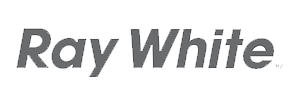 As a landlord, you’re exposed to risks that are often not covered by standard insurance. When taking on this responsibility it’s vital to have yourself covered in as many ways as possible to avoid legal issues or repair bills later on down the track.
As a landlord, you’re exposed to risks that are often not covered by standard insurance. When taking on this responsibility it’s vital to have yourself covered in as many ways as possible to avoid legal issues or repair bills later on down the track.
Legally, property-owners are now bound by the Health and Safety at Work Act (HSWA) due to the high number of work related injuries occurring in New Zealand each year. As a landlord, this means that you’re responsible for the health and safety of yourself, your tenant, anyone you employ to work on the rental property and any member of the public that enters the property.
With landlord insurance you’d be covered for legal costs that might arise from a workplace injury. So, for example, if someone tried to prosecute you on the basis that health and safety hazards on your property caused them an injury, depending on your plan and cover, your insurance should cover your legal bills.
Read more: Landlord's health and safety responsibilities
Tenancy Services recommends you consult several insurance companies to clarify the details around their policies to make sure you find the right one that works for you. It’s also important to note that if for whatever reason you are fined for not following correct health and safety protocol or you’re in violation of HSWA, then you are unlikely to be covered by your insurance policy. This is even more reason to have a health and safety plan in place.
Many landlords choose to deal with the responsibilities of HSWA themselves, but with the new laws surrounding the Act their responsibilities are a lot bigger, especially in terms of the knowledge needed to deal with the legalities of the situation. Landlord insurance can also cover property chattels listed in a tenancy agreement, as well as the property itself. If your tenants are holding the key to your retirement plan you don’t want to leave anything to chance. You want to be covered in the event of an unattended stove, earthquake, freak accident or wilful damage. When choosing an insurer, ask about the claim process. Some companies need to know about your tenant selection process before a claim will be paid out. Clearly, over-insuring a property, then leasing to tenants who are guaranteed to trash the place is something insurance companies have seen before.
With ever-changing laws and responsibilities around health and safety, the current earthquake situation in Christchurch, potential earthquake scenarios in Wellington, and the possible flow-on effects these might have on the rest of the country, now might be a good time to remove the stress and worry of insurance and the cover it provides, by placing your property in the care of a licensed property manager. In some cases, agencies may include landlord insurance as part of their fees, or as an additional extra. As an industry partner they may also have access to cheaper premiums, or at the very least be able to recommend a good provider or broker who understands the rental market.
So, what is landlord insurance. It short, its protection when you need it most, particularly now with new laws and regulations making their way into your life and business. A property manager can help you choose the right level of cover and dodge any unexpected legal battles and court dates.
For more valuable tips and information on how to protect you and your rental property, download our guide to property management risks:










